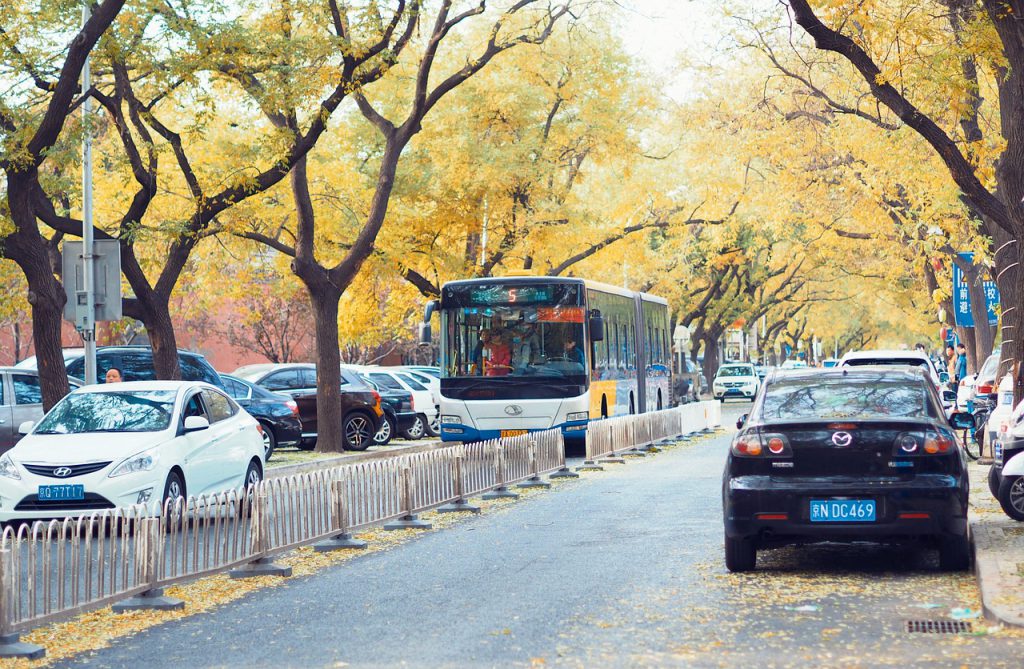Do You Need Injections for Beijing?
There is no need for special vaccination. China does not have any diseases that can be prevented by vaccination abroad. If you must give some advice, then give a hepatitis B vaccine, because China’s hepatitis B epidemic is the most serious in the world, if you are really worried, then vaccinate it!
What Procedures Do Non-Local Babies Need to Be Vaccinated in Beijing?
Babies from other places are vaccinated in Beijing as long as they bring a vaccination certificate. The vaccination certificate is handled in the baby’s birthplace. To apply for the vaccination certificate, you need to bring the baby’s birth certificate and the parents’ household registration book.
Outsiders Vaccinate Children in Beijing

A. First of all, make sure that the place where you rent belongs to the community hospital.
For example, we rented in a community in Huilongguan and began to handle the mother and child health files at the Huilongguan Community Hospital. Later, for the children who returned to their hometown, they contacted the Huilongguan Community Hospital and learned that they would be vaccinated at the Longteng IV Health Center.
B. After confirming the vaccination, we should start to go through the formalities.
(1) Proof of residence.
Prepare a house rental contract, a copy of the property certificate and ID card of the owner of the house you rent, which can be related to the end of the rent. When you are ready, apply for the residence certificate in the neighborhood committee of the community.
(2) Temporary residence permit (not necessary, it is said to be applied for on the Internet, but it is not used in practice).
Prepare the residence certificate and apply for the temporary residence certificate at the police station of the leased land.
(3) Vaccination certificate issued by hometown.
C. Make an appointment at the community hospital.
The first vaccination in Beijing, you have to make an appointment in advance, the doctor will indicate the next injection, if there is a self-funded vaccine, will be informed in advance. After the appointment, bring the formalities on the appointed date and take the child for an injection.
Eight Vaccines That People Living in China Need to Be Vaccinated Against
Influenza-Influenza (Influenza) Is a Viral Disease Caused by a Variety of Closely Related Viruses
It is usually a small infectious disease that occurs in mild climates. The period from November to March is the peak of influenza in the northern hemisphere. Influenza vaccine is very important for people living in Shanghai. Everyone should be vaccinated against influenza every year. October to early December is the best time to get vaccinated. Flu vaccines are extremely safe, and formulations are updated every year to cover the most common flu strains in the coming year. Currently, there are no vaccines available for swine flu (H1N1) and bird flu.
Hepatitis B-Hepatitis B Is a Viral Disease That Is Mainly Transmitted Through Blood
Hepatitis B in the general practice that it can also be sexually transmitted, other routes of transmission are not clear. It is recommended that everyone living in Asia, especially in China, where there are 130 million chronic hepatitis B virus carriers, be vaccinated against hepatitis B. Hepatitis B vaccine is very safe, there are 3 injections in the whole course, according to the procedure of 0, 1 and 6 months, that is, after the first injection, the second and third injections are injected at intervals of 1 and 6 months. It is strengthened every 10 years.
Hepatitis A-Hepatitis an Is a Highly Infectious Viral Disease That Is Transmitted Through Contaminated Food and Water
The hepatitis A vaccine is important for everyone who lives or travels in Asia for more than a year. The whole course of hepatitis A vaccine was vaccinated twice with an interval of 6 months. Like the hepatitis B vaccine, the hepatitis A vaccine is very safe and should be strengthened every 10 years.
Typhoid-Typhoid Is a Water / Foodborne Disease That Causes High Fever, Abdominal Pain, Diarrhea and Sometimes Even Death
Typhoid vaccine is very important for people living in Asia. There is currently an oral vaccine that can be used in children and adults over the age of 6. The efficacy of oral typhoid vaccine is as long as 5 years. The typhoid vaccine is suitable for children and adults over the age of two and is effective for up to three years.
Rabies-Rabies Is a Deadly Venereal Disease Transmitted by Animal Bites
Rabies is found in wild animal populations in Europe and North America and is rarely found in livestock. Rabies is common in local dog herds in China. Families with pet cats and dogs are highly recommended to be vaccinated against rabies. Rabies vaccines are important for all children because children are the groups most likely to come into contact with local cats and dogs.
Japanese Encephalitis (Japanese Encephalitis)-An Extremely Serious Viral Disease Transmitted by Mosquitoes
Mosquitoes bite infected pigs or ducks and carry the virus, which is then transmitted to humans. Although the disease is common in rural areas of Southeast Asia, it is rare in big cities like Shanghai. Foreigners who travel to rural areas of Southeast Asia or live in the suburbs of big cities should consider being vaccinated against Japanese encephalitis. Please ask your doctor if this vaccine is suitable for you.
Tetanus-Tetanus Is a Disease Caused by Bacteria Common in the Soil and Infects Humans Through Contaminated Wounds
Tetanus vaccine should be strengthened every 10 years on a regular basis. If you have a particularly dangerous wound in your body and it has been more than 5 years since your last vaccination, your doctor should give you an extra shot when you see a doctor.
Polio (Polio)
If you have received a full set of vaccines as a child, you should strengthen them once after the age of 21 in adulthood.
Beijing Center for Disease Control and Prevention Warns: Don’t Give up Vaccination to Your Child at Will
According to the current regulations on the Administration of Vaccine Circulation and vaccination, vaccines are divided into two categories in China. The first category of vaccine refers to the vaccine provided by the government to citizens free of charge, and citizens should be vaccinated in accordance with the regulations of the government. Including the vaccines determined by the national immunization plan; the vaccines increased by the people’s governments of provinces, autonomous regions and municipalities directly under the Central Government in the implementation of the national immunization plan; and the vaccines used in emergency vaccination or mass vaccination organized by the people’s governments at or above the county level or their competent health departments. The second type of vaccine refers to other vaccines that are voluntarily vaccinated by citizens at their own expense.
Pang Xinghuo, deputy director of the Municipal Center for Disease Control and Prevention, reminded parents that the first type of vaccine is required by the state and provided free of charge, which is very important for the healthy growth of children. Do not give up vaccination for children at will because of panic. “in the case of hepatitis B alone, in the past three years, there have been zero reported cases of acute hepatitis B under the age of 20 in Beijing. This reflects the importance of a class of vaccines.
Is It Better to Go to the Hospital or the Community for Vaccination?
Under normal circumstances, uh, they will go to the community, especially when the baby is relatively small, uh, the community will be closer, ah, and, uh, there are not too many people.
Vaccination can choose both domestic and imported, from the safety is recognized by the state, but their production process is different, in addition, imports may be mainly inactivated vaccines. Of course, if economic conditions permit, choosing a variety of all-in-one vaccines can save children from the pain of multiple vaccinations. If some vaccines are postponed to 1 year old after vaccination is a fluke mentality, who can guarantee that 1 year old will not suffer from this disease!
Is the Door-To-Door Injection Reliable for the “Online Appointment Nurse” in Beijing?
The “sharing economy” has recently come up with a new trick: in Beijing, Shanghai, Guangdong, Fujian and other places, citizens who need professional nursing services such as injections, dressing changes, and stitches no longer have to go to hospitals and clinics, take out their mobile phones and make an order, and “online nurses” come to the door immediately.
Some experts believe that “online nurses” make full use of professional nursing resources and meet the medical and nursing needs of the masses, which is a positive exploration of “Internet + Medical Care.” However, some scholars say that in the field of medical care related to the health and safety of residents, market opening needs to be cautious. The relevant person in charge of the National Health Commission said that the relevant departments are stepping up efforts to study and formulate policies, improve relevant regulatory measures, protect the rights and safety of both “online nurses” and patients, and standardize the development of the industry.
Mostly From Public Hospitals
“online appointment nurses”, as the name implies, means that the Internet platform signs up some practicing nurses, and patients make orders through the platform to make an appointment for nurses to come to their homes to provide them with health care services. According to media statistics, more than a dozen “online appointment nurses” platforms have been launched in China since the end of last year. These platforms mainly provide injection, infusion, blood collection, dressing change, urinary catheterization, sputum suction, colostomy care, stitching, atomization treatment and other services, as well as maternal and infant care services such as placebo and postpartum care.
The process of making an appointment with a patient is not complicated. After registering and authenticating on the mobile phone, patients begin to choose the services they need, upload prescriptions, drugs and case certificates issued by medical institutions, and wait for nurses to receive orders. After the order has been approved, the nurse can make an appointment with the patient to carry out door-to-door service. If the order care risk is high, the platform will choose to reject it.
Most of the door-to-door nurses come from public hospitals and take orders part-time on the platform in their spare time to increase their income. Others are students who have obtained the corresponding qualifications in health schools and are guided by teachers to carry out the service online.
The Price Is Significantly Higher Than That of the Hospital
In terms of price, although there is no relatively unified pricing standard for each major platform at present, on the whole, the cost of nurses’ door-to-door service is much higher than that of hospital outpatients, which is generally equivalent to 5 to 8 times the price of the hospital. it mainly includes nursing service fees and transportation fees.










